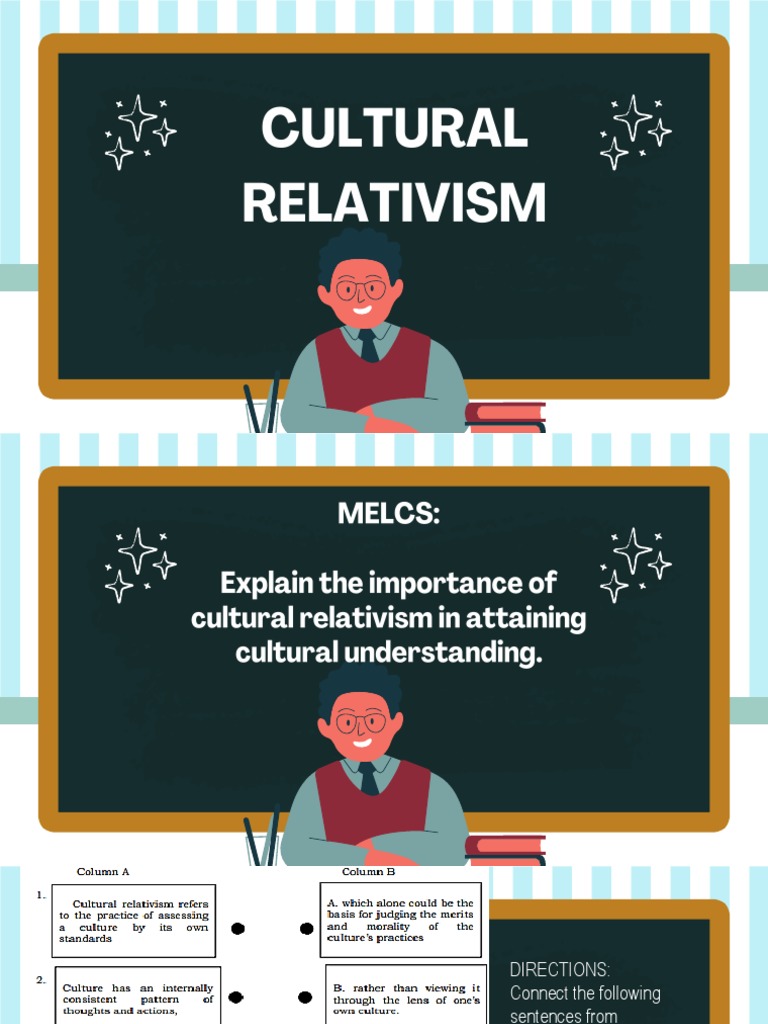Cultural relativism, a paradigm that posits the significance of understanding cultural practices and beliefs within their own contextual frameworks, has become a prominent lens through which scholars and laypersons alike examine human behavior and societal constructs. Its rise can be attributed to an array of interwoven factors ranging from historical developments to philosophical discourse and the ever-accelerating currents of globalization.
Firstly, one must consider the historical backdrop that gave impetus to the emergence of cultural relativism. The late 19th and early 20th centuries saw an expansion of Western imperialism, which often disregarded indigenous cultures and their practices. The ethnocentric perspectives that characterized this era led to a backlash among thinkers and anthropologists who began to recognize the importance of cultural context. This period marked a pivotal shift; as explorers and collectors of cultural artifacts ventured into previously uncharted territories, they encountered a plethora of belief systems that were starkly different from their own.
Could it be that this encounter with diverse cultures prompted a reevaluation of the superiority complex endemic to Western civilization? The answer lies in the burgeoning field of anthropology, which advocated the idea that a culture must be understood in its own right, without the tether of external judgment. Pioneers such as Franz Boas championed the theory that each culture has its own intrinsic value and meaning, thus laying the groundwork for cultural relativism. This academic stance cultivated an environment where cultural diversity began to be celebrated rather than condemned.
Furthermore, the consequences of World War II significantly influenced the rise of cultural relativism. The atrocities committed during the war—including the Holocaust—highlighted the dangers of an unyielding adherence to ethnocentrism and absolute moral truths. The post-war period urged a collective introspection regarding human rights and the inherent dignity of all individuals, regardless of cultural backgrounds. Human rights discourse gained traction, emphasizing that moral frameworks should be adaptable and inclusive. This shift engendered a greater appreciation for cultural nuances, allowing for a more empathetic worldview.
As globalization accelerated throughout the late 20th century, the interconnectedness of global cultures became undeniable. The advent of technology, particularly the Internet, provided a platform for cultural exchange unimaginable in previous eras. Suddenly, diverse cultural expressions—art, music, philosophy—were accessible, enriching the social landscape and prompting discussions on cultural significance and identity. One might ponder: in an age characterized by cultural fusion, how can we honor authenticity while fostering inclusivity? The challenge lies in balancing respect for cultural heritage with the inevitability of global interconnectedness.
The rise of cultural relativism was also propelled by the philosophical dialogue surrounding ethics and morality. The relativistic view posits that moral values are not universal truths but rather reflections of a given culture. This perspective challenges the notion of an absolute moral framework, provoking critical inquiry into the ethics of cultural practices. For instance, debates surrounding issues such as female genital mutilation or arranged marriages require nuanced understanding and an appreciation for the cultural contexts in which these practices exist. Thus, cultural relativism promotes a discernment that urges observers to approach such topics with sensitivity, recognizing that moral judgments can often be culturally biased.
In addition, the realm of post-colonial theory has significantly contributed to the advocacy of cultural relativism. Scholars such as Edward Said and Homi K. Bhabha critiqued the hegemonic narratives that have historically dominated scholarly discourse. They argued for the deconstruction of colonial legacies embedded in knowledge production, emphasizing the importance of the voices of the marginalized. This critique has led to a broader understanding of cultural representations, infusing cultural relativism with a sense of social justice, thus challenging existing power dynamics.
As we reflect on the myriad causes contributing to the rise of cultural relativism, it becomes evident that this phenomenon is not merely an academic movement; it is a social imperative. The contemporary world continues to wrestle with the implications of cultural relativism, especially amid tensions surrounding immigration, nationalism, and cultural appropriation. Can it be suggested that the rise of cultural relativism could serve as a tool for navigating these complexities? The answer is multifaceted and demands a collective rethinking of how cultures interact.
In conclusion, the rise of cultural relativism is rooted in a combination of historical encounters, philosophical developments, and the dynamics of globalization, each layer contributing to a richer understanding of cultural variability. By acknowledging and respecting the diverse cultural tapestries that shape human experience, society can foster an inclusive environment that not only appreciates differences but actively engages with them. Ultimately, the challenge remains: in an increasingly interconnected world, how do we cultivate a sense of global citizenship that honors cultural distinctiveness while promoting a shared humanity? Addressing this question is crucial for the continued evolution of cultural relativism in modern discourse.
